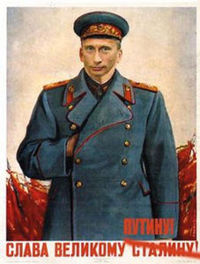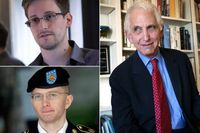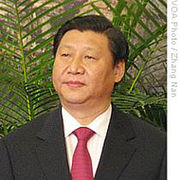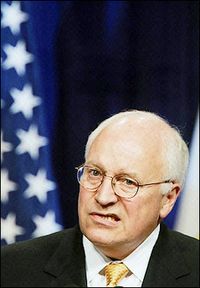
But all big ideas must be tested. Information has become the central battlefield of our time.
Tyrants believe that, by controlling the flow of information, they can control people. Talent will still do its work if those who have talent can be isolated within their areas of interest, and convinced that politics is none of their business.
In this way, freedom becomes a continuum, a knob that can be turned this way and that. Information autocrats must allow some communication, so their talent can breathe and perform. Information libertarians must have some limits on information, lest the autocrats use it against them.

In this war, truth is fungible. It is what people believe to be true that matters to Putin, who is convinced that Orwell’s 1984 can be made real, that it is already real. Anyone who questions the regime, or who asks questions, is thus a threat. Journalists are vulnerable. Those within the society can be silenced, those outside dismissed as propagandists. What is binary in this world isn’t freedom, but loyalty.
That’s why the work of Edward Snowden and Chelsea Manning is so troubling to Western leaders. To say, information wants to be free, information demands release, everyone should be able to tell truth for themselves, is naïve. Engaging in this way amounts to unilateral disarmament in the information war.

What was most damaging in Snowden’s work was less its revelations about the NSA than the propaganda value it provided to all America’s adversaries. The fact that we were seeking threatening needles in huge haystacks of data, generated by hundreds of millions of people, should not have been news. It’s seen by government as basic police work, Internet cops trying to stay on top of public safety. But the belief engendered by Snowden, that “we” are no different than “them,” was the greatest propaganda coup of the age.
What tyranny needs to thrive in the Age of Information War is cynicism. Snowden created massive amounts of cynicism across the West, especially among the talent elites who are so key to beating Putin, destroying his economy and thus winning the war. Millions of good people were neutralized by what Snowden did. They will remain neutralized.

Xi is not alone. Every government sees absolute liberty as breeding political and economic chaos. European governments certainly do. Even America’s government understands the danger. Finding a balance between openness and security in the post-Snowden age is an enormous challenge, one which can be engaged in either with subtlety, as this Administration has sought to engage in it, or with a closed fist.

So dark days may be ahead. Putin’s view of information, as a state power demanding control, is advancing across the world. Even in America. The more subtle, nuanced view is seen as not only weak, but compromised by many who should be flocking to its banner.
At the heart of the Information Age, it turns out, is complexity. America’s political, social, and economic advantages are all wrapped up in the idea of complexity. Freedom is complex, because what it means is different within every human soul. What you define as freedom depends on what you value most.
I define freedom in terms of my access to information, and my ability to comprehend, describe and discuss this complex world in a way that makes sense to me. I am a journalist.
This makes me dangerous. And if you understand all you have just read then so are you. In the Information War all thinking people can be weapons of war, deployable at a moment's notice, on any side you choose.










